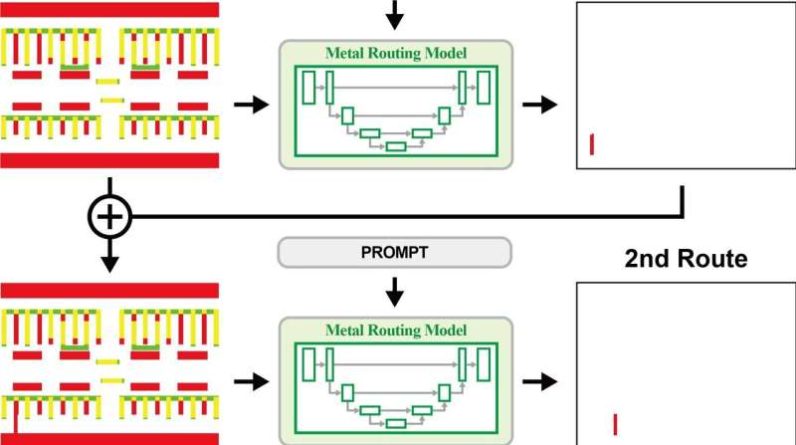That day marked the beginning of a new era, in which automation would not only supplement human effort but replace it altogether.
From AI-driven recommendations on Netflix to self-driving cars, and from manufacturing and logistics to software and services, automation is transforming business operations, helping to increase productivity and reduce costs with enhanced precision.
As India strives to become a global manufacturing and technology hub, driven by the Union government’s initiatives such as ‘Make in India’ and ‘Digital India’ and the adoption of Industry 4.0 practices, demand for automation has surged.
At the heart of this transformation are a few technology companies that are advancing into new territories. Some such companies listed on India’s stock exchanges not only cater to domestic demands but are also emerging as significant players in the global automation supply chain.
ABB India Ltd
ABB India is an integrated power equipment manufacturer that supplies a range of engineering products, solutions, and services in automation and power technology. It also gains advantages from its parent company, ABB Ltd, including access to its research and development facilities.The Switzerland-based ABB Ltd is aglobal leader in electrification and automationwith operations in more than 100 countries.
ABB India operates in four business segments—electrification, which contributed 43% of its overall revenue; motion (34% of revenue); process automation (18%); and robotics (5%).
Geographically, ABB India derives 90% of its revenue from the domestic market and the rest from exports to more than 30 countries. In India, the company has a network of 28 sales offices and more than 750 partners. It operates 25 manufacturing plants across five locations in India.In March, ABB India partnered with AI startupUptimeAIto enhance its asset health and performance management in heavy industries.
For the fourth quarter of 2024-25, ABB India reported a 2.5% year-on-year revenue growth and a 3% rise in ebitda. Ebitda margin improved slightly to 18.4%.
Looking ahead, the company’s management has acknowledged difficult macroeconomic conditions, especially in orders related to large projects and process automation, due to global and domestic uncertainty.
Over a 1-year period, shares of ABB India have fallen by about 32% due to muted operational and financial performance.
Siemens Ltd
Siemens offers integrated manufacturing solutions, intelligent infrastructure products, and efficient generation, transmission and distribution of electrical energy for passenger and freight transportation. Germany’s Siemens AG indirectly holds a 75% stake in the company.
Siemens Ltd is engaged in multiple business segments, deriving 40% of its revenue from smart infrastructure, 17% from digital industries, 13% from mobility solutions, 24% from energy, and 6% from low-voltage motors. Geographically, the company derives 84% of its revenue from India and 16% from exports.
In the March quarter, Siemens delivered only a 2.6% year-on-year revenue growth due to muted demand. Ebitda fell 26.6% y-o-y and margin deteriorated to 11%.
Looking ahead, the management sees early signs of recovery, with channel inventories normalising and some channel partners resuming orders.
Shares of Siemens have fallen 57% in the past year because of its muted financial performance.

Persistent Systems Ltd
Persistent Systems provides software engineering and strategy services to help companies implement and modernise their businesses. It has its own software and frameworks with pre-built integration and acceleration. The company also has partnerships with Salesforce Inc. and Amazon Web Services.
Persistent Systems provides complete digital engineering solutions for product and platform engineering, customer experience and design-led transformations, cloud-enabled enterprise modernisation, data and AI, and intelligent automation.
The company derives 47% of its revenue from software, hi-tech engineering, and emerging industries segments, 31% from the banking, financial services and insurance sector, and 22% from healthcare and life sciences companies.
Persistent Systemsis present in more than 20 countries, including the US, Australia, Canada, Germany, and Japan. North America is the company’s biggest market, accounting for 80% of its revenue, while India contributes 10% and Europe, 9%.
The company has more than 375 clients, including six of the world’s top 10 technology companies, five of the 10 largest banks, and seven of the top 10 healthcare providers.
Persistent Systems reported a robust 21.6% revenue growth for FY25, and ebitda growth of 22.8%. Ebitda margin improved from 17.1% in FY24 to 17.2% in FY25.
Looking ahead, the company’s management is confident of achieving its revenue target of $2 billion by FY27, with a focus on AI-led services. The company is also eyeing $5 billion in revenue by FY31.
Persistent Systems’s shares have returned 57% over the past year on the back of strong operational performance and growth.

Tata Elxsi Ltd
Tata Elxsi is among the world’s leading providers of design and technology services across the automotive, media, communications, and healthcare industries.
The company provides integrated services ranging from research and strategy to electronics and mechanical design, software development, validation, and deployment, and is supported by a network of design studios, global development centres, and offices worldwide.
Tata Elxsi provides innovative services for autonomous driving, connected vehicle systems, OTT or video-streaming platforms, and advanced digital products. The company is also known for its strong presence in the automotive and broadcasting sectors.
Geographically, the company derives 42% of its revenue from Europe, 34% from the Americas, 18% from India, and 6% from the rest of the world.
Segment-wise, Tata Elxsi derives 53% of its revenue from the transportation sector, 33% from media and communications, 13% from healthcare and medical devices, and 1% from others.
The company specialises in providing hardware and software solutions for the design and verification of semiconductor products. These services are crucial in developing integrated circuits, system-on-chip (SoC) designs, and other semiconductor components.
Since the company was established in 1991, it has grown phenomenally, with a customer base of 11.8 million as of March 2024.
Tata Elxsi reported a 9.6% revenue growth for FY25. Ebitda grew 25.3% and ebitda margin improved from 17.6% in FY24 to 20.1% in FY25.
The company’s plans involve focusing on software-defined vehicle technologies, expanding into new markets like the UK, and leveraging AI and digital technologies across industries, including transportation, media, and healthcare.
But shares of Tata Elxsi have fell 12% over the past year on muted financial performance.

Honeywell Automation India Ltd
Honeywell Automation India was started in 1987 as a joint venture between the Tata Group and Honeywell. It was known as Tata Honeywell Ltd. In 2004, Honeywell Asia Pacific Inc. bought Tata’s stake and changed the company’s name.
Honeywell Automation is engaged primarily in the business of automation and control systems, and is a leader in providing integrated automation and software solutions, including process and building solutions.
Geographically, the company derives 60% of its revenue from India and 40% from its export business, which focuses on engineering services, contract manufacturing, and projects across its line of businesses for Honeywell affiliates.
In FY25, Honeywell Automation clocked 3.2% revenue growth owing to muted demand. Ebitda fell 0.8%, and its margin deteriorated from 15% in FY24 to 14% in FY25.
Shares of Honeywell Automation are down 34% over the past year because of its muted financial performance.

Conclusion
The rise of automation marks a transformative phase in India’s industrial and technological evolution. Despite recent margin pressures and low order inflows, these five companies are strategically positioned to benefit from structural tailwinds.
India’s ongoing push for self-reliance in manufacturing, digital infrastructure, and smart industrialisation under various initiatives is likely to accelerate automation adoption across sectors.
While not all of these stocks have delivered strong returns, their long-term growth potential remains compelling as automation becomes integral to business efficiency, innovation, and competitiveness.
The key for investors is to stay informed and track financials, earnings, execution, and signs of sustained demand recovery.
Keeping these stocks on your radar and timing entries wisely could be a strategic move in capitalising on India’s digital and industrial transformation.
As always, investing decisions should be guided by individual risk tolerance, financial goals, and proper due diligence. Remember the challenges before diving headfirst.
Disclaimer: This article is for information purposes only. It is not a stock recommendation and should not be treated as such.
This article is syndicated fromEquitymaster.com.





